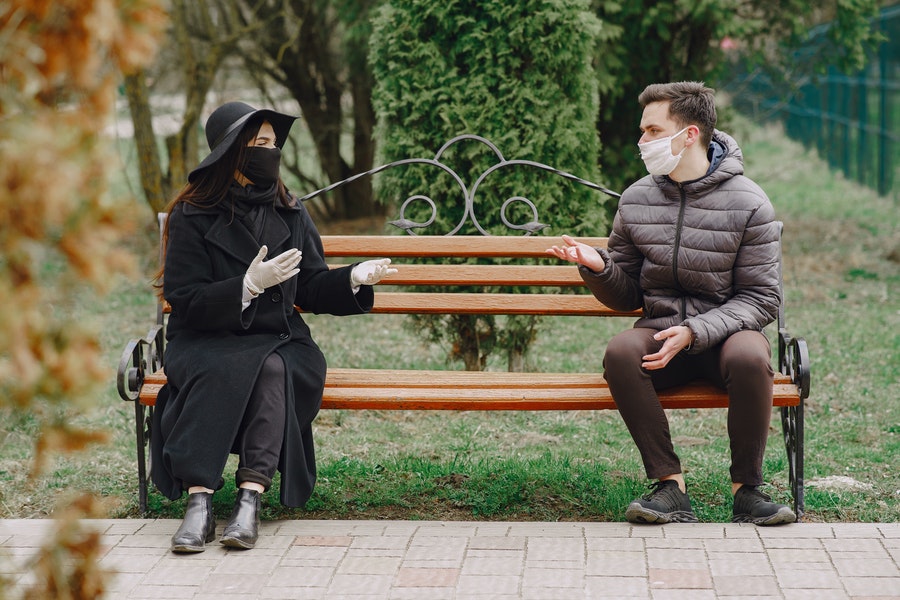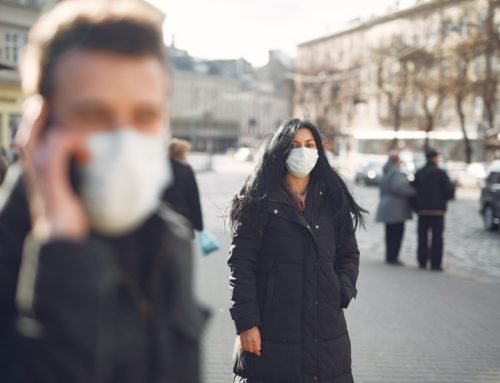If you’ve been feeling anxious lately, you’ve got good reasons. This has been a harsh year. 2020 has seen the emergence of the COVID-19 virus, leading to sickness, death, and massive societal disruption across the world. The US economy has been devastated; many of us are out of work or are working with reduced income levels. It’s no surprise, then, that COVID-19 has its own mental health syndrome: COVID Stress Syndrome (CSS).[1] Approximately 16 percent of American adults are showing signs of CSS and that percentage is likely to increase.
CSS is made up of fears of getting ill, traumatic stress/grief, money concerns, xenophobia, and compulsive reassurance-seeking behaviors. CSS has become a prime source of new cases of anxiety disorder and depression.
COVID Stress Syndrome hits people close to home. Consider that anxiety is generated by the perception of a threat. It’s stoked or suppressed by how confident a person feels about their ability to meet a threat or challenge, and where the coronavirus is concerned, many of us feel helpless to affect our situation. Added into this toxic, scary mix are persistent concerns about financial survival and the trauma of heavily disrupted life routines.
Anxiety can conversely cause us to rise to meet challenges. Here are a few ways to reduce your symptoms of COVID Stress Syndrome.
- Identify what you can control—and what you cannot. At first, you may think you have no control over anything, but you do. Any instance in which you can make a choice, you’ve exercised control. You may be deciding nothing more complex than deciding to take a walk or eat a healthy meal, watch a fun movie or relax with a book, but you’ve still exercised a measure of control over your situation.
- Limit your exposure to media. You don’t have to go into a news blackout, but allot yourself a fixed number of minutes to catch up on the news. Immersing one’s self in worry and fear can create a false sense of control over one’s situation, but of course, all that does is generate skyrocketing anxiety.
- Honor your feelings. It’s ok to feel scared, sad, angry or uncertain. A total denial of our feelings will lead to emotional exhaustion down the line.
- Reach out. You’re not alone. This is a rare time when tens of millions of people are experiencing the same existential threats. The availability of webcams and free communications apps lets us maintain connections with those we love.
- Count the positives in your life. Sure, that seems both trite and hard to do. But consider that the pandemic is a time-limited phenomenon. With the advent of effective vaccines, COVD-19’s days are numbered.
If you’re experiencing these concerns in your own life, take heart: you’re not alone and you’re not helpless. Anxiety can be treated. Damaris Aragon, ARNP, BC provides a full spectrum of mental health care to people in Spokane, Washington, and surrounding areas. She focuses on providing personalized, compassionate care that adheres to current evidence-based standards. Reach out to Damaris through her contact page or calling 509-342-6592.
[1] https://coronaphobia.org/assets/images/infographics/covid_stress_syndrome.pdf






